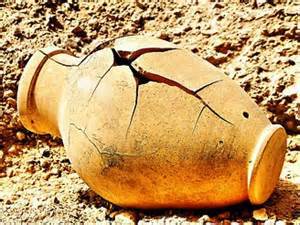I preached again at First Church of Christ, Congregational of East Haddam, Connecticut. They are without a pastor, and so I have sort of become the building sub, as it were. My text today was 2 Corinthians 4:5-12. I must also say I altered one line in the poem below, which has now been restored to its original text. You’ll know the line when you come to it. The title is borrowed from an early Jimmy Buffet album.
___________________
I have a friend named Sarah who teaches eighth grade in Henderson, Texas. After the tragedy at the high school in Santa Fe, Texas, she posted a poem on Facebook entitled “Good Bones” by Maggie Smith.
Life is short, though I keep this from my children.
Life is short, and I’ve shortened mine
in a thousand delicious, ill-advised ways,
a thousand deliciously ill-advised ways
I’ll keep from my children. The world is at least
fifty percent terrible, and that’s a conservative
estimate, though I keep this from my children.
For every bird there is a stone thrown at a bird.
For every loved child, a child broken, bagged,
sunk in a lake. Life is short and the world
is at least half terrible, and for every kind
stranger, there is one who would break you,
though I keep this from my children. I am trying
to sell them the world. Any decent realtor,
walking you through a real shithole, chirps on
about good bones: This place could be beautiful,
right? You could make this place beautiful.
This weekend across America, people are wearing orange to take a stand—again—against gun violence. Coloring our country orange is another way of saying we could make this place beautiful. Whatever the issue, we begin to make the world beautiful when we begin with asking something other than, “What’s in it for me?” If we begin the conversation by staking claim to what we deserve or what we must hold on to, we are not going to have a conversation. The word compassion means to voluntarily take on another’s pain. Jesus said we are to bear one another’s burdens. For me to help carry your load means I can’t start by setting weight limits. We grow together when we think of ourselves as part of something bigger.
There is an unfortunate irony in the fact that many times when we feel frightened or stressed or hurt we pull away from other people when what we need most is to lean into one another. When life is feels most fragile is when we most need to hold on to one another. To love one another.
The apostle Paul found meaning in his faith in Christ by trusting that God’s love was stronger than whatever adversity he faced. He compared his life to a clay pot. J. B. Phillips translated the passage this way:
“This priceless treasure we hold, so to speak, in a common earthenware jar—to show that the splendid power of it belongs to God and not to us. We are handicapped on all sides, but we are never frustrated; we are puzzled, but never in despair. We are persecuted, but we never have to stand it alone: we may be knocked down but we are never knocked out! Every day we experience something of the death of the Lord Jesus, so that we may also know the power of the life of Jesus in these bodies of ours.”
The metaphor of the clay jar reminds me of a line from Fiddler on the Roof where Tevye says, “Whether the stone hits the pitcher or the pitcher hits the stone, it’s going to be bad for the pitcher.” We are breakable; God’s love is not.
In the movie Forrest Gump, Forrest and Jenny were best friends growing up in small town Alabama—like “peas and carrots.” As a child, Jenny was repeatedly abused by her alcoholic father in the farmhouse where she grew up. When she got old enough, she moved away but still had a difficult life. When she finally hit rock bottom, Jenny returned to Forrest, who had loved her through everything, and they revisited the old farmhouse. As Jenny approached it, her anger over the decades of suffering burst out, and she started throwing rocks at the house until she finally fell to the ground, sobbing in exasperation. Forrest sat down next to her, and his narration of the scene observed, “I guess sometimes, there just aren’t enough rocks.”
To say that life is difficult is to state the obvious. We are all acquainted with grief. Figuring out what happens next is hard work. But when we run out of stones when we find that we do not run out of love. When the cracks appear in our earthly jars, we find that love heals and sustains. All that is wrong with the world is not the last word.
That is why we come to the table together: to remember. As we have said before, we are re-membering ourselves—putting ourselves back together—in Jesus’ name. Mending the cracks. Tightening the ties that bind. Reminding ourselves that morning by morning new mercies we see. We come to the table to remember Jesus’ death so that we can remember that is not the end of the story. Love is the last word. Amen.
Peace,
Milton

oh friend this is all the things I try to tell people I grew up with. Because of you, and our people.
thanks for being the poet of my people.
How eloquent, how true! Great theology Milton
Good words reminding us not to despair. And sometimes it is so desperate. Thank you, Milton